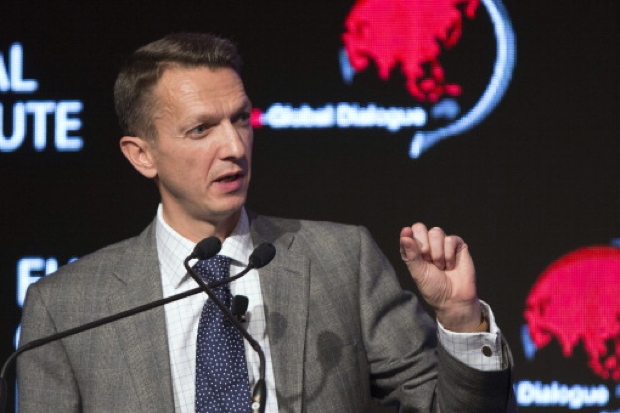As confessions go, it was hardly the most revelatory. Cheryl Fernandez-Versini admits she has problems with relationships. Sir Philip Green accepts he made a bit of a hash of BHS. Ed Miliband owns up to struggling with bacon sandwiches. They would have all come as more of a surprise than the chief economist of the Bank of England, Andy Haldane, finally admitting that when it came to forecasting the impact of Brexit they were a couple of alphas short of a full algorithm. Well, thanks Andy. Who knew?
The problem is that Haldane, and more importantly the Bank, is still deflecting the blame. Haldane argues there is a general problem with economic forecasting. There is some truth in that. But more specifically it is the Bank that is getting it wrong – and that reflects an institution which is increasingly out of touch with the economy it is meant to be managing.
It hardly needs repeating that the UK economy has sailed through the vote to leave the EU with hardly any impact at all. Growth had been robust, employment is up, and retail sales are surging ahead. We have one of the strongest economies in the developed world. And yet, before the vote, the Bank was forecasting a recession, rising joblessness, and rising inflation if we left. Indeed, so convinced was it of that outcome, that it quickly halved interest rates, and started printing money again, to cope with the inevitable ‘crisis’.
It was, Haldane now admits, ‘a Michael Fish’ moment. Like weather forecasters in the 1980s, he argues that economists need to get far better at working out where the world is going. In fairness, there is some truth in that. Economists are rubbish at forecasting. They even make jokes about it, although admittedly not terribly funny ones (‘Did you hear about the economist who jumped into a swimming pool and broke his neck? He forgot to seasonally adjust.’). That is partly because it has become bogged down in complex mathematical models. But it is also because the modern, global economy, is such a fantastically complex thing, with so many thousands of significant variables, it is virtually impossible to always assess it accurately.
But Brexit was not like that. In fact, it was really easy. It was obvious to just about anyone – and let’s remember 52 percent of the electorate got this – that the EU didn’t make much difference to the economy one way or the other. More importantly, if we did leave, it was clear that sterling would fall, and the Bank would cut rates, both of which would stimulate the economy, and more than make up for any growth lost by leaving.
And yet Haldane’s department couldn’t even forecast that the Bank itself would cut rates in a few weeks time, although just about everyone else could see that coming a mile off. It is not really good enough to write that off as a general failure of the economics profession. It was a significant failure by the Bank, and one that led to what now looks like a policy mistake.
The real problem is that the Bank is trapped within a Remain bubble, where it is so institutionally committed to the EU that it has failed to grasp that leaving it will certainly not make the UK any worse off, and may in fact marginally improve its prospects. It is good that Haldane has owned up to forecasting mistakes. But it would be better if he grasped the real problem.






Comments